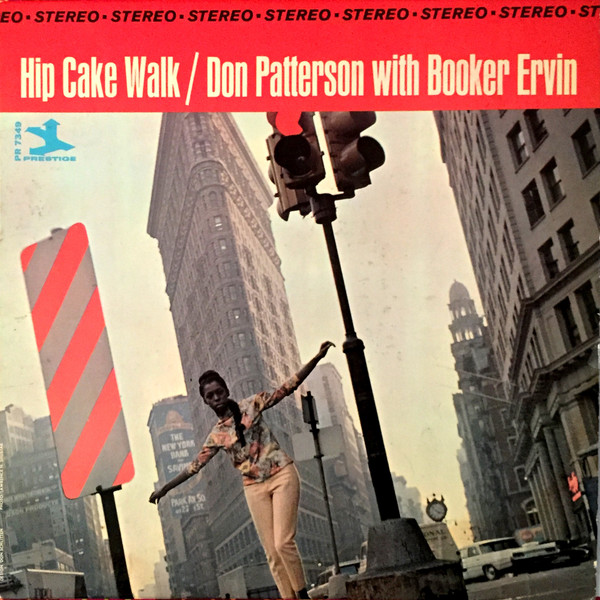LISTEN TO ONE: Satisfaction
This is the first example of a jazz cover of a contemporary rock sone by a Prestige artist, and Don Patterson was the right guy to attempt it. And the liner note, by the great Bob Porter (soon to become one of the leading soul jazz producers for the label, and author of Soul Jazz: Jazz in the Black Community, 1945-1975) is refreshingly unapologetic about it:
"Satisfaction" was a big hit for the Rolling Stones during the summer of 1965. The Stones are closer to the authentic big city R&B feeling than any of the British groups and it is not surprising that one of their tunes fits well in a jazz context.
That's it. 'Nuff said. One cannot imagine this from a previous generation of jazz writers.
And Porter is right. "Satisfaction," in Don Patterson's hands, becomes pure soul jazz. The Stones' drummer, Charlie Watts, always thought of himself as first and foremost a jazz drummer, and I'm sure if he heard this version, he approved of how Billy James set the rhythmic pattern.
Patterson gives Miles Davis the soul jazz treatment too, and as with Mick, Miles emerges none the worse for it. Patteson is having fun with these tunes, and they're fun to listen to. "Walkin'" is from the Prestige Contractual Marathon sessions. Composer credit is given to Richard Carpenter -- not Karen Carpenter's brother, but the music publisher/thug. Secondhandsongs gives this account of the song's composer credit:
Written by Davis, the composition royalties for "Walkin'" were credited to his friend Richard Carpenter. Not a performing musician himself, Carpenter took the simple outline from the 1950 single "Gravy" by Gene Ammons, and structured a blues number around it as "Walkin'"; Miles Davis first recorded the arrangement in 1952 as "Weirdo" for Blue Note, crediting himself as composer, but decided to re-record the tune for Prestige on April 29, 1954, with Carpenter now receiving composer credit.
Which quite likely doesn't tell the whole story. Miles certainly was no stranger to claiming credit for music, the most famous example being "Dig," written by 19-year-old Jackie McLean for an early Prestige Miles Davis session, claimed by Miles as his own. Years later, when asked if McLean really wrote the song, Miles replied, "Yeah. So?"
But Miles was the leader of the session that McLean brought "Dig" to, and it wasn't unheard of for a session leader to claim composer credit for a piece that was brought in by a sideman and developed during the session. Richard Carpenter was another story. His songwriting technique was an interesting one. He would take a tune written by someone else, apply whiteout to the composer's name, and write in his own. He was one of the real bad guys of the jazz profession in those days.
So anyway, "Walkin'" by someone, most likely Gene Ammons, is a great tume, and Patterson does it just fine.
This was Jerry Byrd's first recording on a label of any significance. As a young musician in Pittsburgh, he had made a record on a local label with Gene Ludwig, He had hooked up with Rahsaan Roland Kirk when Kirk was in Pittsburgh, and played in his ensemble. He was a protege of Wes Montgomery, and also played with Jack McDuff and Sam Rivers.
"Satisfaction" was, unsurprisingly, the first 45 RPM single off the album, with a Patterson composition, "Goin' to Meeting" (how's that for a soul title?) on the flip side.
"John Brown's Body," a nontraditional reimagining of the traditional Civil War marching tune, is divided into parts 1 and 2 on another 45, and retitled "John Brown's Soul" on the label.
Satisfaction! with an exclamation point is the album title. Cal Lampley produced.











:format(jpeg):mode_rgb():quality(90)/discogs-images/R-3303561-1324846735.jpeg.jpg)


.jpg)
.jpg)